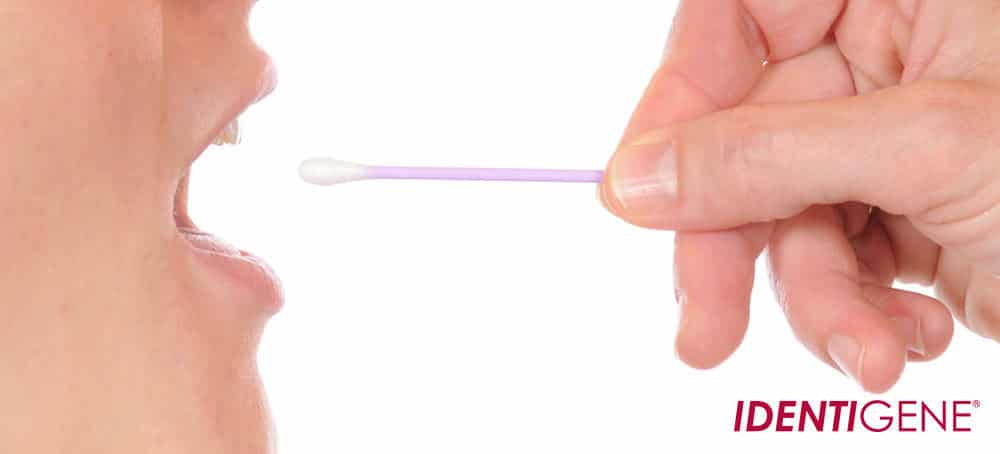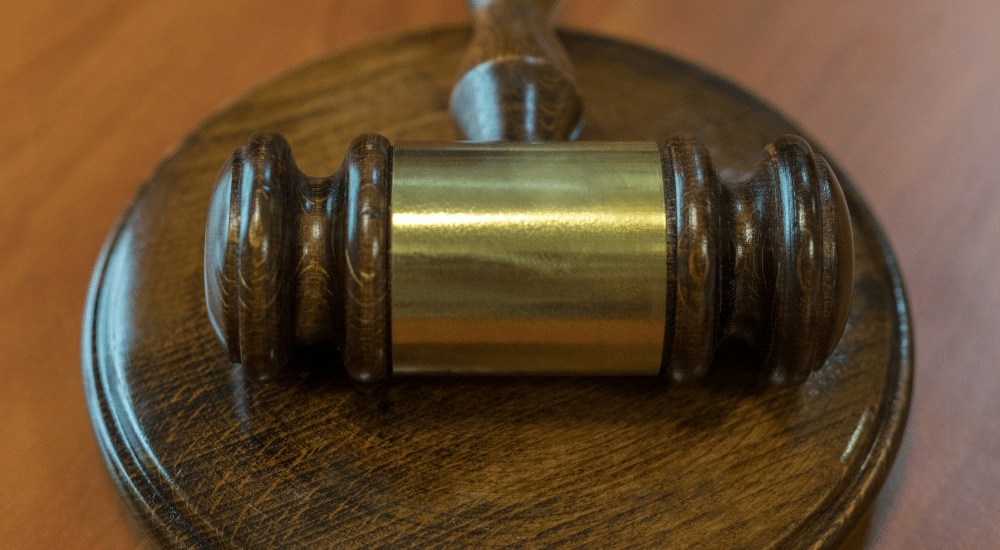If you’re planning on doing DNA paternity testing, one of the first questions you think of may be, ‘Is this going to hurt?’ As a top DNA paternity testing lab, we get asked all the time whether there are going to be needles involved. The answer is simply, ‘Probably not.’ The overwhelming majority of post-natal paternity tests are conducted using cheek (or buccal) cells, collected with a painless swab.
Here’s why blood, spit, or cheek cells may be used for DNA tests and also why cheek cells are the method of choice for most DNA paternity testing.
Is Spit Used for DNA Paternity Testing?
Saliva (spit) can be used for paternity testing, but there are some definite pros and cons:
PROS:
- It is an excellent source of testable genetic material and a large amount of DNA can be collected in a relatively small sample of saliva
- It is non-invasive, meaning there are no needles involved and no discomfort
CONS:
- It is extremely difficult to get a pure saliva sample from a newborn, so the risk of contamination during collection can be high
- Testing materials (a vial plus specialized liquid for DNA preservation) are expensive when compared to cheek swabs, and that means higher testing costs for the customer
- If an exclusion (or ‘not the father’) result is obtained and the lab only has one vial of the customer’s saliva to work from, results cannot be confirmed using a separate sample
Why Use Blood for Paternity Testing?
DNA is DNA, so there’s no difference between the genetic material in a blood sample and that collected by other methods. For the most part, DNA collected through cheek swabs or saliva is all that’s needed for fast and accurate paternity testing. But there are times when a blood sample is necessary:
- For a prenatal paternity test, it is necessary to take a blood sample from the mother. Cells from the fetus free-float in the mother’s bloodstream and so a DNA profile can be obtained from these fetal cells and compared with the possible father’s. The possible father’s DNA is obtained via buccal swabbing
- In certain cases when the possible father has passed away, a coroner or hospital may have retained a blood card containing the deceased’s DNA. That sample can be tested to help determine paternity
PROS:
- The risk of accidental sample contamination is extremely low
CONS:
- Needles are involved, so if you are squeamish or highly-sensitive to pain, this isn’t the optimal choice
- Blood samples require refrigeration, which is inconvenient at best
Why are Cheek Swabs the Preferred Method for DNA Collection?
When you buy a DNA paternity test kit at a retail location, it comes with three sets of three cheek swabs. Buccal swabs aren’t like regular cotton swabs: they’re specially-designed to effectively collect and trap cheek cells within the fibers. There are reasons why we use these swabs for most tests instead of any other method:
PROS:
- Swabs are effective, yet inexpensive. Since three swabs per participant are included in the kit, the lab gets all the DNA it needs to perform the testing and the price of the test is low for the customer
- It is a non-invasive method of collection: absolutely no needles or pain
- Unlike collecting saliva, it is easy to collect good DNA samples from the littlest child-even a newborn!
- Swabs do not require refrigeration. In fact, after samples are collected, they are good for up to six months as long as the swabs are kept in a cool, dry place
- It is easier and faster for a lab to extract DNA from a cheek swab than from blood
CONS:
- It is possible for cheek swabs to become contaminated if customers do not handle them per kit instructions. If this happens, however, it doesn’t affect results because it will be caught at the lab level during testing. The customer is then asked to collect new samples before testing resumes.
The Bottom Line
As you can see from these comparisons, the pros of using buccal swabs far outweigh the cons, which is why they are the DNA collection of choice for fast, accurate, and affordable paternity testing.
Follow us on Facebook and Twitter! If you have questions about paternity tests or other DNA testing services, please contact our Client Support Center at 888-404-4363, Mon-Fri from 8:30 AM to 5:30 PM Eastern Time. Our friendly, expert representatives are ready and happy to help. Get answers anytime by visiting our Help Center.









